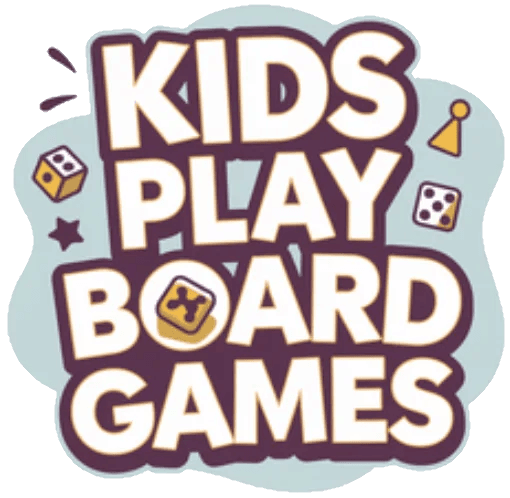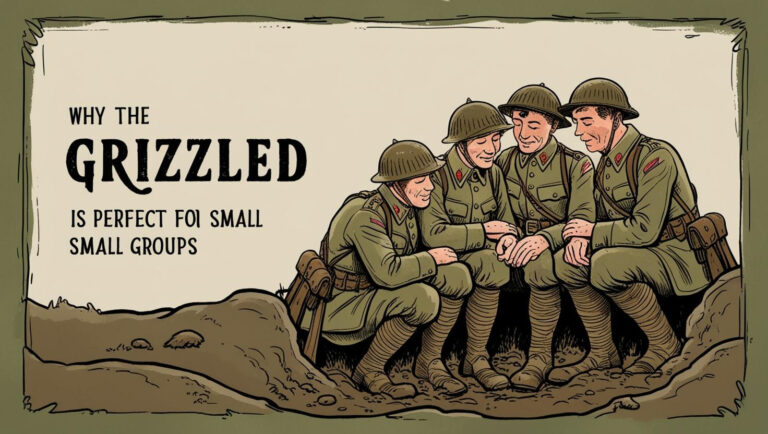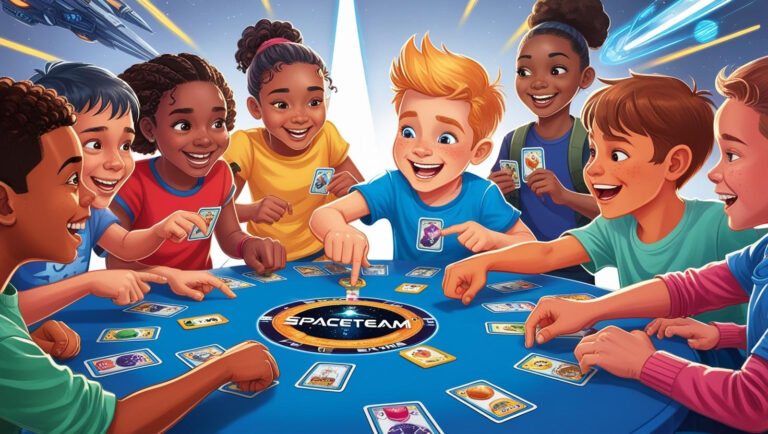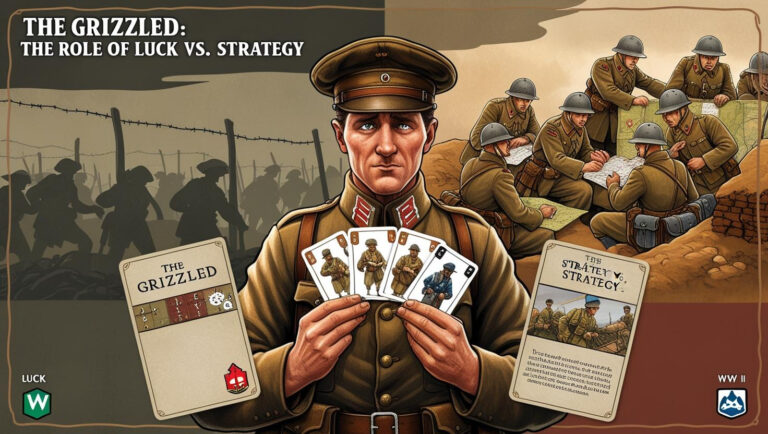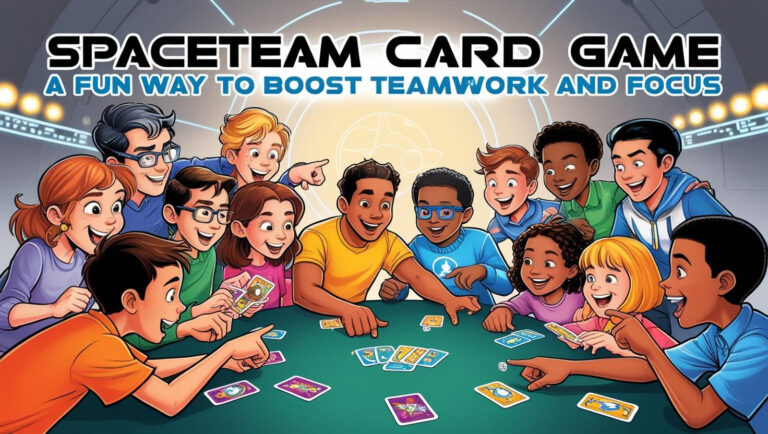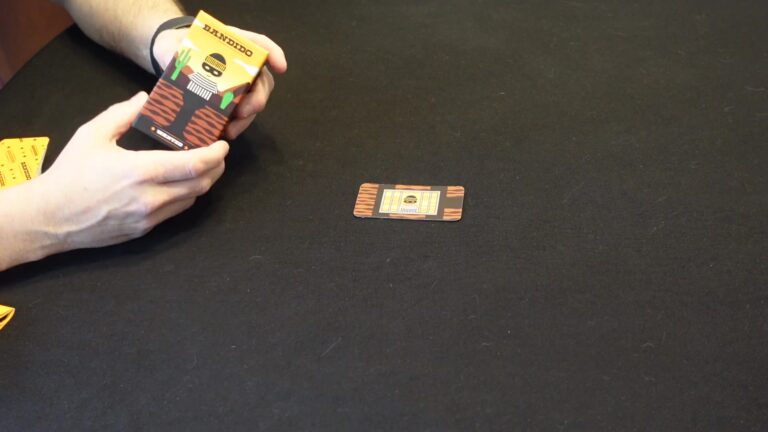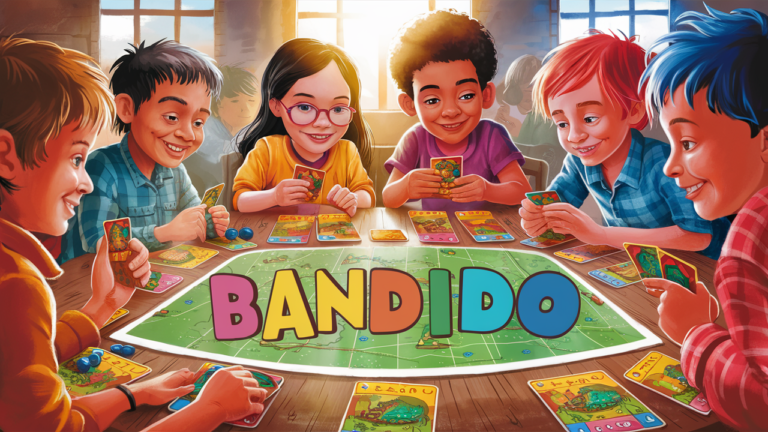How Strategy Board Games Help Kids Develop Problem-Solving Skills
Board games are more than just a fun way to pass the time—they’re powerful tools for teaching children essential life skills. Among these, problem-solving stands out as a critical ability that can shape a child’s cognitive and social development. Strategy board games, in particular, offer a unique blend of entertainment and education, challenging kids to think critically, make decisions, and adapt to new situations. In this article, we’ll explore how these games enhance problem-solving skills, recommend top games for different age groups, and share tips for parents to maximize the benefits.
Why Problem-Solving Skills Are Crucial in Child Development
Problem-solving is the cornerstone of cognitive and emotional growth. It equips children with the ability to tackle challenges, make informed decisions, and adapt to changing circumstances. Whether it’s resolving conflicts with peers, excelling in academics, or navigating everyday obstacles, problem-solving skills are indispensable. Strategy board games provide a safe and engaging environment for kids to practice these skills, making them an excellent addition to any family’s routine.
What You’ll Learn
In this article, you’ll discover:
- How strategy board games promote problem-solving skills.
- The cognitive and social benefits of these games.
- Recommended games for different age groups.
- Practical tips for parents to enhance the learning experience.
- Real-life applications of problem-solving skills gained through play.
Understanding Problem-Solving Skills
What Are Problem-Solving Skills?
Problem-solving skills involve the ability to identify challenges, analyze options, and implement effective solutions. For children, these skills are vital for managing tasks, making decisions, and adapting to new situations. Strategy board games simulate real-world scenarios, encouraging kids to think critically and experiment with different approaches.
The Cognitive Benefits of Problem-Solving for Kids
Engaging in problem-solving activities boosts cognitive development by enhancing logical reasoning, creativity, and focus. Games that require strategic thinking help children process information, plan ahead, and evaluate outcomes—skills that are directly applicable to academic subjects like math and science.
How Strategy Games Foster Problem-Solving
Strategy board games are uniquely designed to challenge players with complex problems and dynamic decision-making. They encourage kids to analyze situations, adapt strategies, and refine their approaches—skills that are essential for tackling real-world challenges.
How Strategy Board Games Enhance Problem-Solving Skills
Encouraging Strategic Thinking
Games like Ticket to Ride or Catan Junior require players to think several steps ahead. Kids learn to manage resources, plan routes, and anticipate opponents’ moves, honing their ability to think strategically.
Developing Patience and Perseverance
Problem-solving often involves setbacks and frustrations. Strategy games teach children the value of patience and perseverance, helping them stay focused and resilient in the face of challenges.
Improving Decision-Making Abilities
In strategy games, every move counts. Kids learn to make informed decisions under pressure, weighing risks and rewards to achieve their goals. This skill is invaluable in both personal and academic settings.
Building Cognitive Flexibility
Strategy games often require players to adapt to unexpected changes. This fosters cognitive flexibility, enabling kids to adjust their plans and think on their feet—a skill that’s crucial in real-life situations.
Recommended Strategy Board Games for Developing Problem-Solving Skills
Games for Beginners (Ages 6-8)
- Ticket to Ride: First Journey
A simplified version of the classic game, this introduces young players to strategic thinking through route-building. Kids learn planning, prioritization, and decision-making. Learn more about how to play Ticket to Ride. - Outfoxed!
A cooperative deduction game where players work together to catch a thief. It teaches logical reasoning, pattern recognition, and teamwork. Check out our review of Outfoxed!. also you can learn more about how to play here
Games for Intermediate Players (Ages 8-10)
- Catan Junior
A kid-friendly version of Settlers of Catan, this game introduces resource management and negotiation check the full review here . Players must strategize to build pirate lairs and ships. Learn how to play Catan Junior here. - Blokus
An abstract strategy game that challenges spatial thinking and planning. Players must block opponents while maximizing their own moves—perfect for families and educators. Prefer solo play? Try our step-by-step guide to Blokus solo mode. For a deeper dive, read our full Blokus review or explore games like Blokus for similar tile-based fun.
Games for Advanced Players (Ages 10-14)
- Pandemic
A cooperative game where players work together to stop global disease outbreaks. It teaches teamwork, resource management, and long-term planning. For families and young scientists, our Pandemic: Hot Zone North America review breaks down why it’s a game-night essential. New to the game? Learn how to play and strategize with our 2024 guide for rules, tips, and winning tactics. - 7 Wonders
A strategic card game where players build civilizations, emphasizing resource management, adaptability, and decision-making. New to the game? Master the basics and advanced tactics or learn how it stands out among board games with its award-winning design. For veterans, explore expansions that elevate gameplay or refine your edge with our military strategy guide. Dive deeper in our full 7 Wonders review.ere.
Practical Tips for Parents to Maximize the Benefits
Encourage Reflection After Each Game
Ask your child what strategies worked, what didn’t, and what they could try next time. This helps them internalize lessons learned.
Rotate Games to Keep Skills Fresh
Introduce a variety of games to challenge different aspects of problem-solving, such as planning, flexibility, and teamwork.
Set Up Group Game Nights
Playing with family or friends enhances social skills like communication, cooperation, and sportsmanship.
Real-Life Applications of Problem-Solving Skills Gained
Academic Benefits
Children who excel at strategy games often perform better in subjects like math and science, which require logical reasoning and pattern recognition.
Social and Emotional Benefits
Problem-solving games teach resilience, patience, and emotional regulation, helping kids handle setbacks in life with confidence.
Future Skill Building
The critical thinking, adaptability, and decision-making skills developed through strategy games are highly valued in the workforce, preparing kids for future success.
Conclusion
Strategy board games are more than just entertainment—they’re a powerful tool for developing problem-solving skills in children. By encouraging strategic thinking, patience, and adaptability, these games prepare kids for academic, social, and professional success. Incorporate them into your family routine and watch your child’s problem-solving abilities flourish.
